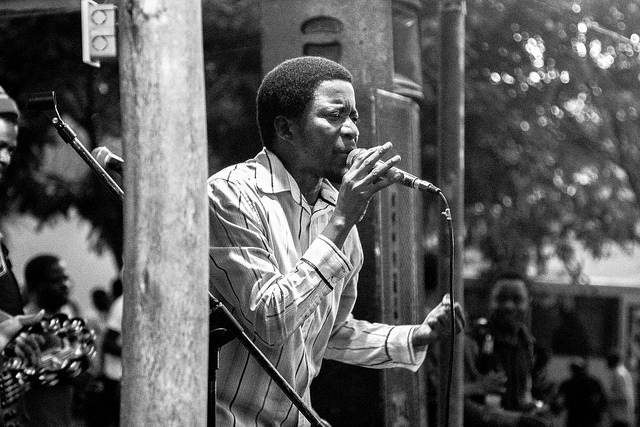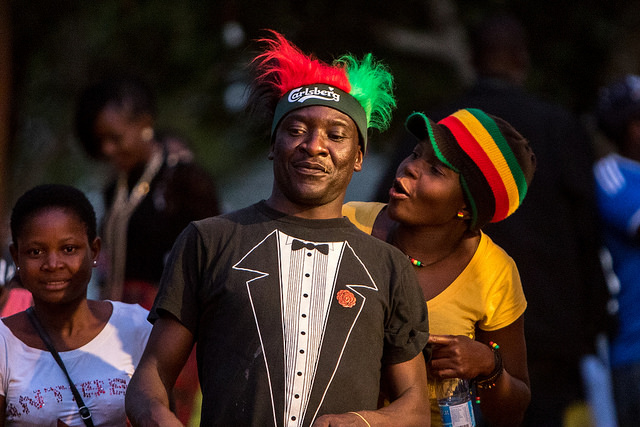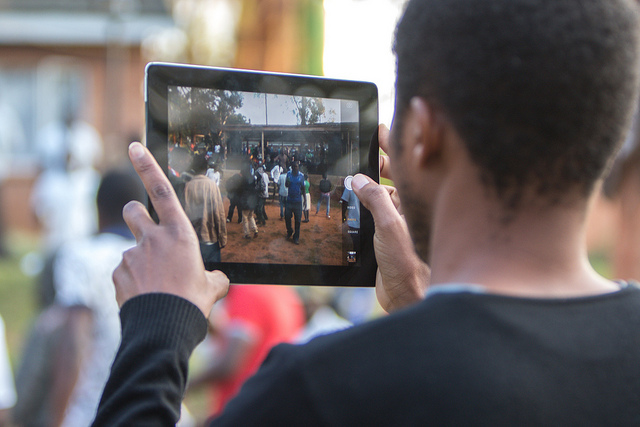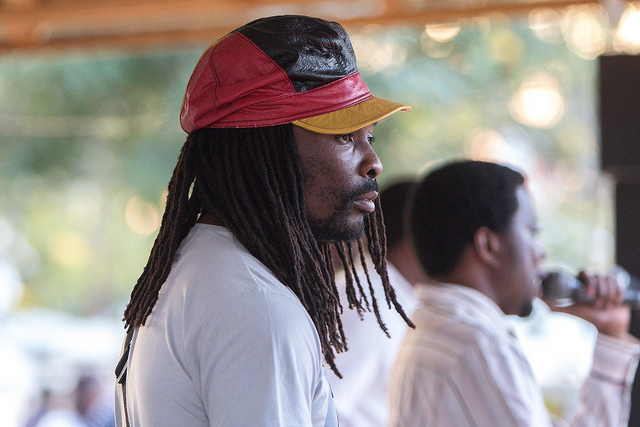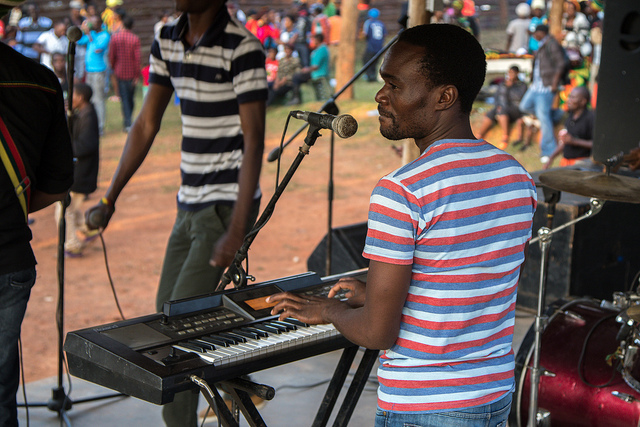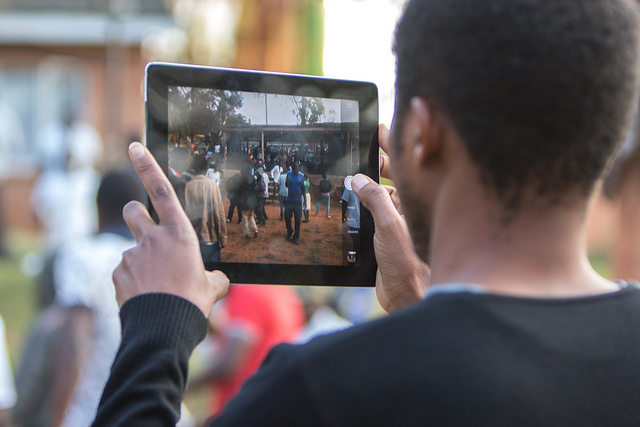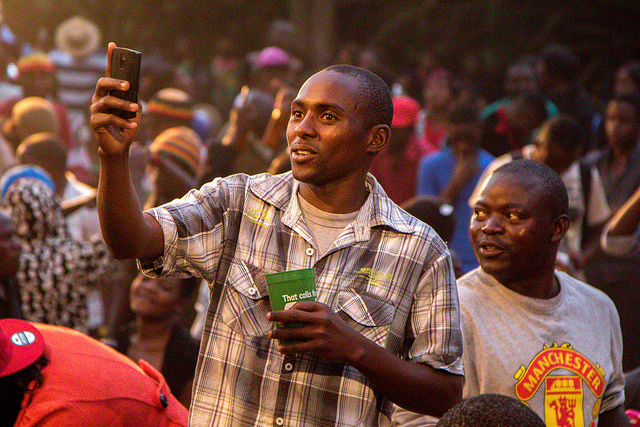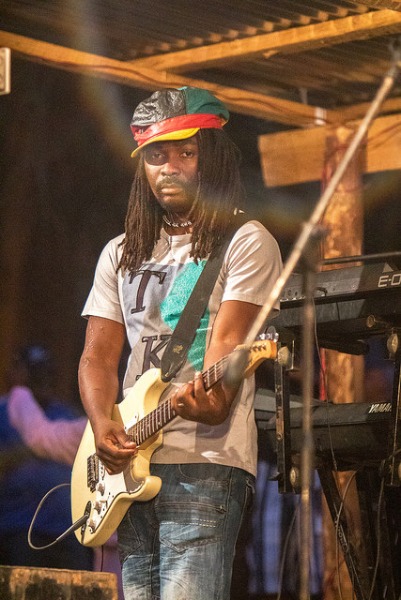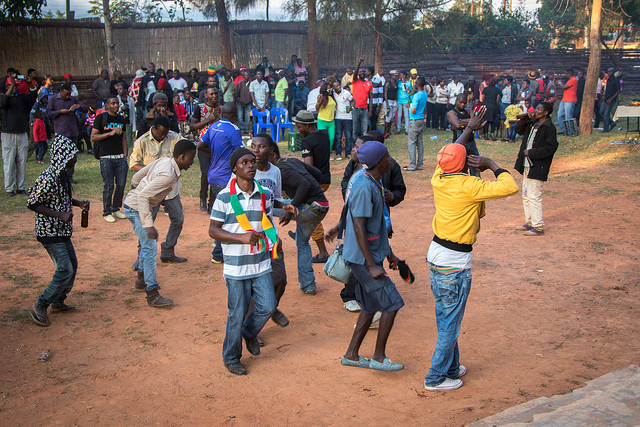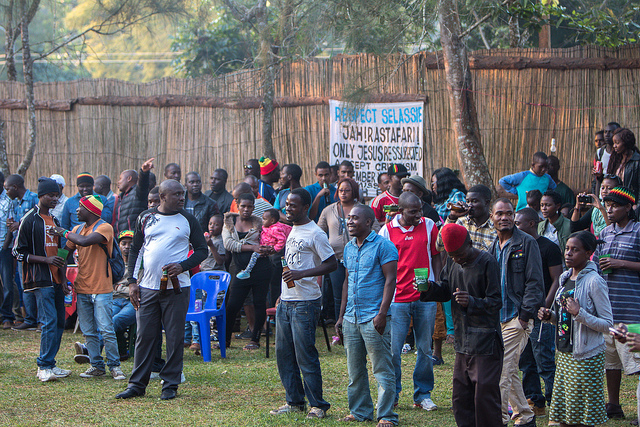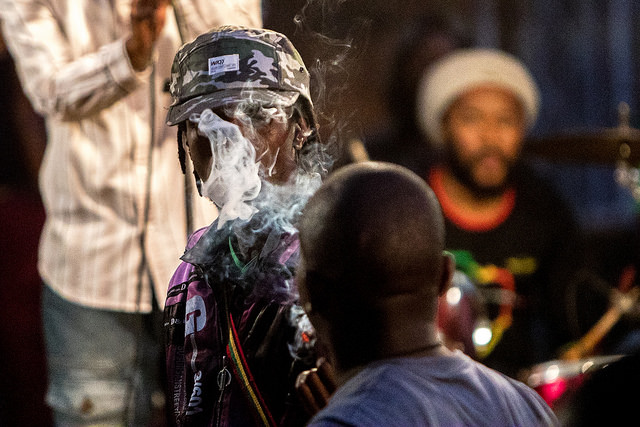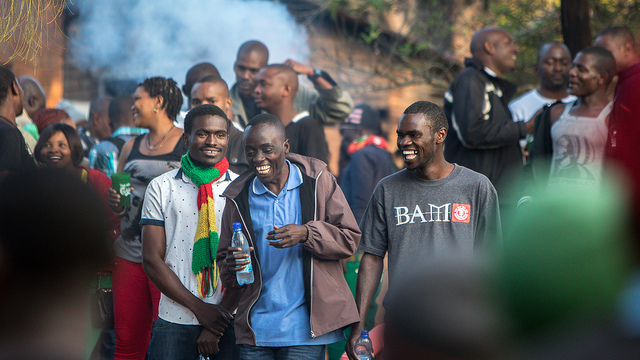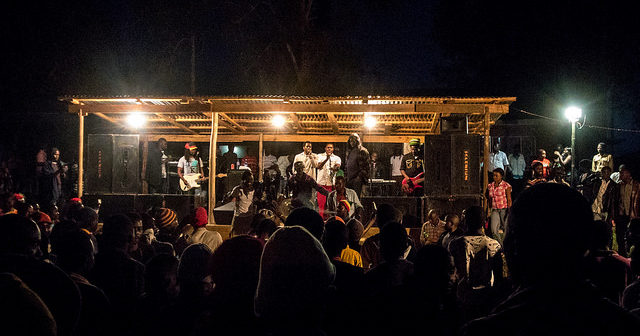During July and August, we take the musical pulse of some african cities. Every week, a postcard is published, as an immersion into a musical mood somewhere in the continent : live concerts on streets, in clubs, by night or by day, private parties, traditional dance or ceremony… so many faces telling life of a city throught music and the meetings it triggers.
Mzuzu, set amongst rolling forested hills in northern Malawi, is a bustling agricultural trading hub by day but by night the city really does seem to fall asleep. With the tropical night plunging the city into complete darkness around 6pm and the lack of street lighting, it becomes a hazardous maze of pot holes and open sewers, and even finding one of the abundant moto-taxis to take you home becomes a challenge.
This July Saturday night seems like any other in Mzuzu, with the city bathed in thick darkness and streets almost deserted other than the odd vegetable seller hurrying home, but as we pass the centre and take the rutted M5 highway that leads to Nkhata Bay and the shores of Lake Malawi, the city suddenly comes to life, with rows of clapped-out Toyotas lining the highway and throngs of people shuffling along the road. As we approach Mzuzu Lodge hotel, the source of excitement becomes clear, with a pounding bass line and a sea of light emanating from the hotel’s garden. We physically swim through the crowd, thrust 2000 kwacha each into the hand of the AK-47 toting security guard on the gate, and then we’re in. On a rickety stage in the hotel’s shady garden, Black Missionaries, Malawi’s legendary reggae 5-piece churn out hit after hit from their huge back catalogue. Songs like Dalo, Rastaman’s Wife and Tidzingocheza are often heard blaring out of Malawi’s roadside bars and taxi radios. In Malawi, Black Missionaries are the closest thing to major national celebrities, instantly recognisable and universally loved, and heard from the soundsystems of the major cities to the wind-up radios of the most remote villages. And yet they never seek to be bigger than the sum of their parts. The songs exude warmth and generosity, a profound dedication to Rastafari, and above all a deep and heart-felt love of their motherland, Malawi. They’ve toured the world plenty of times, but remain firmly rooted in Malawi, singing in the national language, Chichewa, and tirelessly touring to adoring crowds throughout the country.
And tonight, the fact that the entire crowd seems able to mouth along the words to every song throughout the set, which lasts over 4 hours, is telling of the immense significance of’Ma Blacks’ to Malawians from all walks of life.
Malawi, a narrow strip of land sandwiched between much larger countries in southern Africa, is known as the’Warm Heart of Africa’, a country of outstanding hospitality despite its grinding poverty. Nevertheless, it seemingly lacks the world-renowned music scene of regional neighbours, such as Zimbabwe. Indeed, as a foreigner living in Malawi, the country’s music scene is often rather hard to pin down. World music exports of recent years, such as The Very Best and Malawi Mouse Boys, seem almost unheard-of in Malawi itself, as though their music is produced for export only. Meanwhile, in Malawi itself, local bars seem more inclined to blast out the South African and Nigerian pop that’s heard throughout all of Africa than to show off the wares of Malawi itself. If there’s one thing that all Malawians agree on though, it’s Black Missionaries. The band formed in Blantyre, Malawi’s economic hub, in the 1990s, and became known in the early years for their political activism, and particularly for their criticism of the policies of the then President Muluzi. These interventions, particularly a series of open letters written by the original vocalist Evison Matafale to Muluzi, led to heavy handed treatment from the authorities. Matafale died of pneumonia whilst in police custody in 2001, plunging him into legendary status and earning him the nickname of’the Prophet’ amongst Rastafarians in Malawi. The current lineup of Ma Blacks remain hugely influential figures in Malawi’s Rasta community, but for the current generation of young Malawians growing up with their music, one senses that the political and religious symbolism of the music is diminishing with time. Indeed, several local friends in their 20s and 30s tell me that their best memories of Black Missionaries are of listening to them on crackly speakers at school discos, with their minds more preoccupied with making tentative approaches towards the opposite sex than on criticising government policy.
At the concert, Black Missionaries rock out, with every hook and groove causing the crowd to buck and sway. The banter in between tracks is largely limited to the bassist Peter Aminu enquiring as to whether the crowd is having a nice time, punctuated by exclamations of « Rastafari! » and « Selassie! » Although a little repetitive, every word he breathes draws a huge cheer from the crowd. For the whole evening, one really has the impression of people letting go. The dancefloor in front of the stage is initially restricted to a few extremely drunk men, but as the evening wears on, the venue packs out and a raging dancefloor forms. The ground becomes increasingly littered with empty Carlsberg cups, whilst a heavy fog of marijuana hangs in the air. What’s most noticeable is how the music of Ma Blacks brings men and women together. Mzuzu’s supremely limited selection of nightclubs consists largely of brothels, with the opportunity for women to go out and dance the night away almost non-existent on an ordinary night. Tonight, however, the dancefloor is full of boys and girls rocking, swaying and colliding, whilst families stand back appreciatively, from toddlers to grandparents. It feels like all of Mzuzu’s humanity is united for one night only, lost in the music.
Lire l’article traduit en français : Reggae night in Mzuzu, Malawi///Article N° : 13089
